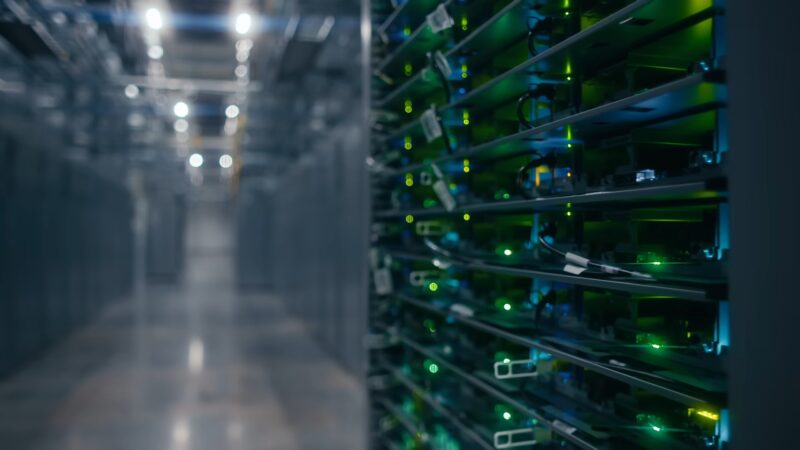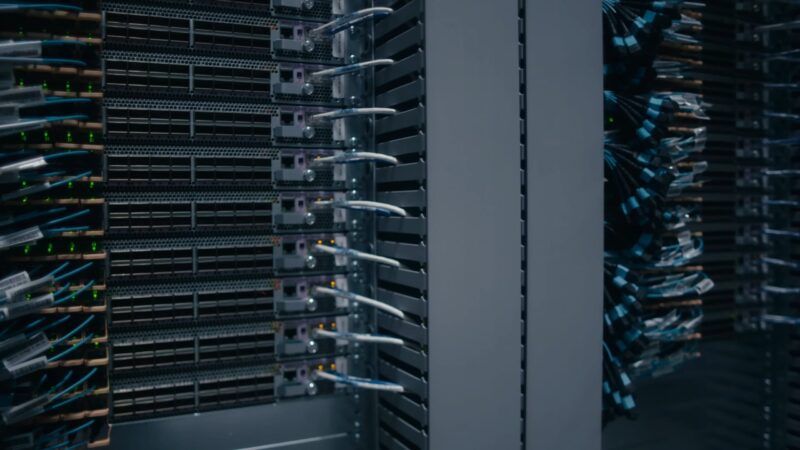Colocation data centers provide a wide range of services and advantages to organizations looking to unburden themselves from the expense and hassle of maintaining their own private, on-premises IT infrastructure.
Making the move to a data center is no small step. Aside from the initial questions of server space, rack deployment density, power availability, and cooling capabilities, organizations also need to think about the additional benefits colocation facilities can offer them. From intelligent monitoring tools to on-site security, there are plenty of options to consider.
In the midst of all these decisions, however, there’s one simple question that should never be lost in the mix:
Is the data center carrier-neutral?
The answer to this question could have profound long-term consequences for an organization and its efforts to achieve a true digital transformation. To understand why carrier-neutral colocation is so essential, it’s important to take a close look at what it actually means for a data center to be carrier-neutral.
What is a Carrier-Neutral Data Center?
A colocation data center offers physical and virtual space for companies to store and manage their servers and data infrastructure. In many cases, these companies are running their entire service-based businesses through a data center. By eliminating the high costs of maintaining their own infrastructure, they can focus their existing IT resources on other tasks that provide positive benefits to their business in the form of innovation and research.
But the data center is only one piece of the infrastructure puzzle. The other pieces are the internet service providers (ISPs) that connect an organization’s network to the internet, which allow them to reach customers and conduct everyday business.
A carrier-neutral facility is simply a data center that is entirely independent of these network providers. It is not owned and operated by a single ISP, instead offering a wide variety of connection options to its colocation customers. These connectivity options are further enhanced by direct connections to cloud services, which are often facilitated over a single cross-connect for superior performance. This flexibility makes colocation solutions an excellent choice for small businesses seeking reliable, scalable, and high-performance infrastructure without being tied to a single service provider.
Why is Carrier-Neutrality So Important?

To understand and appreciate carrier-neutral data center benefits, it’s important to understand a few things about a single-carrier facility. When an organization places servers within a data center environment, it becomes totally dependent upon that facility for all of its connectivity needs. A single-carrier facility typically only offers little, if any, choice in terms of connectivity. If an internet service provider manages a colocation facility, it would be directly competing with itself by allowing tenants to connect to a rival ISP. While they may offer upgrades or different service tiers, these facilities only offer flexibility within the ecosystem of their own connectivity services.
This puts customers in the uncomfortable situation of being locked into a specific vendor. Without the ability to select from a suite of connectivity options, colocation tenants are exposed to the risk of sudden pricing or service changes. If the data center increases its internet connection fees, customers must decide whether those higher prices are outweighed by the substantial costs of migrating to a new facility.
3 Key Carrier-Neutral Data Center Benefits
Single-carrier facilities are defined by their restrictions, but that doesn’t have to apply to colocation data center providers in general. There are a number of advantages that come from partnering with a carrier-neutral facility over a single-carrier data center.
1. Cost Savings
First and foremost, carrier-neutral facilities generally offer lower connectivity prices. That’s because the data center essentially functions as an ISP marketplace.
By offering multiple connection options to colocation data center customers, ISPs have a strong competition incentive to keep their prices low and provide better services.
If customers are not pleased with their current ISP within a data center, it’s a simple matter of switching providers without disrupting their operations. Furthermore, not all companies require the same level of ISP connection from their data center. Organizations that make extensive use of edge computing with Internet of Things (IoT) devices or streaming content can’t afford to be stuck with subpar connectivity. A carrier-neutral facility gives them the opportunity to select the provider that most closely meets their business needs.
The costs of selecting a single-carrier data center go beyond price (although price is certainly important!). With only one carrier to “choose” from, colocation data center customers can easily fall victim to not just price increases, but also reduced bandwidth and service reliability, which could lead to costly downtime. Furthermore, the costs of relocating to a new data center must be taken into account.
Even if a single-carrier data center’s ISP offers a good price initially, future increases could force an organization to make the expensive switch to another (probably carrier-neutral) data center. By opting for carrier-neutrality the first time, they can avoid the hassle and expense.
2. Reliability

In today’s data-driven economy, maintaining service uptime is critically important to most companies’ business operations. Carrier-neutral data centers offer a level of ISP redundancy that simply isn’t possible with their single-carrier counterparts.
By connecting multiple carriers to critical IT systems, organizations can ensure that even in the event of one carrier’s service outage, the other carrier can keep systems up and running and connected without a hitch. More importantly, by blending multiple ISPs together, carrier-neutral data centers can provide superior security to protect customers from crippling DDoS attacks and other cybersecurity threats.
This level of risk mitigation and service redundancy ensures that companies will be able to keep their operations up and running even under duress. It also protects them from the threat of data breaches, which can devastate an organization financially and inflict irreparable brand damage.
Since carrier-neutrality also allows colocation data center providers to deliver services over a single cross-connect, there are far fewer links in the connectivity chain. This contributes to better overall uptime reliability and security.
3. Flexibility

As organizations grow, they need service partners that can scale along with them. The options provided by a carrier-neutral facility allow companies to always match their needs with the ideal ISP and cloud provider, both in terms of service and physical infrastructure.
In a data center deployment, the physical arrangement of cables, routers, and servers can make a difference in performance. The basic principles of networking may be similar across facilities, but single-carrier facilities may not offer the same benefits in terms of data center interconnections, disaster recovery options, or MSP bundled services.
With a carrier-neutral environment, companies have all the options they could ever want at their disposal whether they’re just getting established or looking to grow rapidly. With all the advantages offered by carrier-neutral data centers, single-carrier facilities are finding it increasingly difficult to compete; some are even choosing to make the switch, offering limited carrier-neutral services to customers.
For organizations looking to maximize their colocation investment, however, the best option remains a true carrier-neutral facility built from the ground up to provide the freedom needed to build the most reliable and cost-effective IT infrastructures.
FAQ
What is the difference between a carrier-neutral data center and a carrier-specific data center?
A carrier-neutral data center allows customers to choose from multiple internet service providers (ISPs) for connectivity, while a carrier-specific data center is tied to a single ISP, limiting flexibility and choice.
How does a carrier-neutral data center enhance cloud connectivity?
Carrier-neutral data centers often have direct connections to multiple cloud providers, allowing for faster, more reliable, and secure cloud access, optimizing hybrid and multi-cloud strategies.
Final Words
In the evolving digital landscape, flexibility, reliability, and cost-effectiveness are paramount. Carrier-neutral data centers embody these principles, offering organizations the freedom to choose, adapt, and grow. As businesses continue to embrace digital transformation, the choice of a carrier-neutral facility becomes not just a preference, but a strategic necessity.
Related Posts:
- What is Managed Colocation and How Does It Work?
- Baby Carrier vs. Stroller ─ Which Is Better for Your…
- Planning Your Everest Adventure – What You Need to…
- What is Cloud Computing? Everything You Need to Know
- Data Center Design 101: Everything You Need to Know
- Data Center Networking 101: Everything You Need to Know








